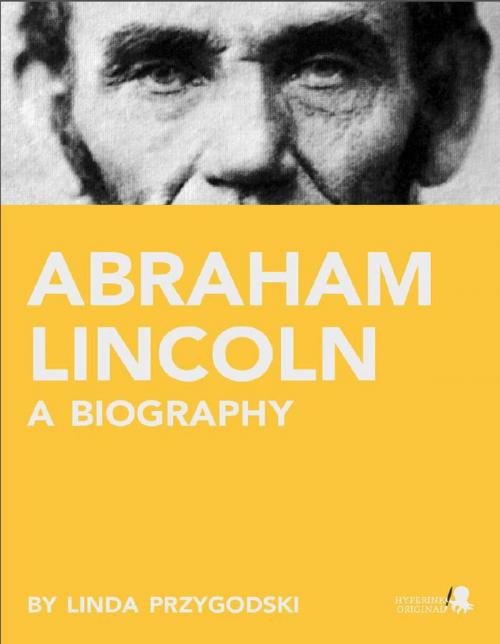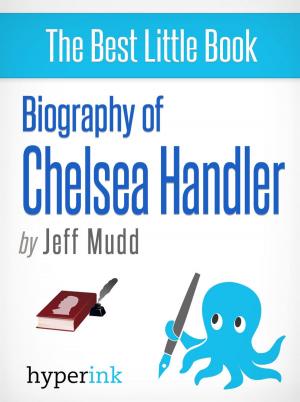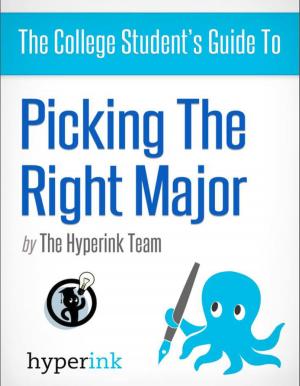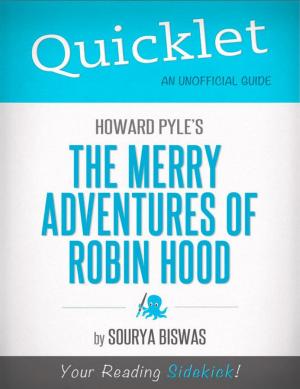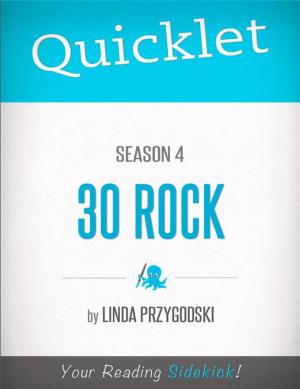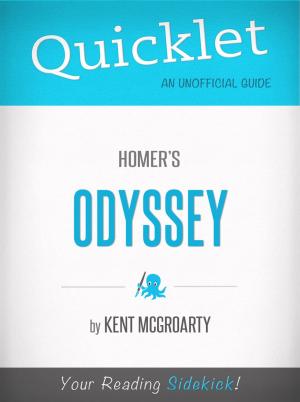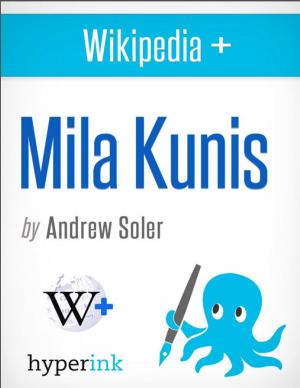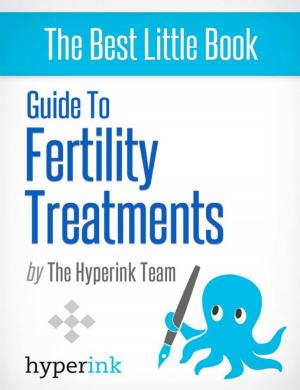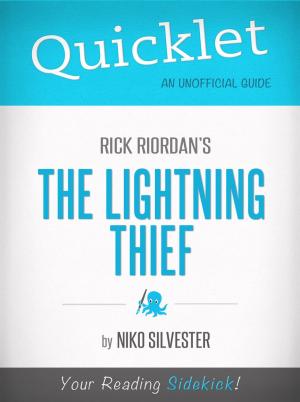| Author: | Linda Przygodski | ISBN: | 9781614646518 |
| Publisher: | Hyperink | Publication: | July 30, 2012 |
| Imprint: | Hyperink | Language: | English |
| Author: | Linda Przygodski |
| ISBN: | 9781614646518 |
| Publisher: | Hyperink |
| Publication: | July 30, 2012 |
| Imprint: | Hyperink |
| Language: | English |
ABOUT THE BOOK
It took only a few minutes to deliver, and it contained just 268 words. Compared with the time wasted and words carelessly bleated out by modern politicians and pundits, the Gettysburg Address is one heck of a bargain.
No speech better sums up Abraham Lincoln than the Gettysburg Address, and no telling of his story can begin without recounting it. Lincoln, the 16th President of the United States, delivered these words on November 19, 1863 in Gettysburg, Pennsylvania. A few months early, a bloody, pivotal battle of the Civil War had been fought there, and Lincoln was on hand to dedicate the land to the fallen soldiers. The gaunt, 6-foot-4 man stepped in front of the crowd and delivered these words:
“Four score and seven years ago our fathers brought forth on this continent, a new nation, conceived in Liberty, and dedicated to the proposition that all men are created equal.
Now we are engaged in a great civil war, testing whether that nation, or any nation so conceived and so dedicated, can long endure. We are met on a great battlefield of that war. We have come to dedicate a portion of that field, as a final resting place for those who here gave their lives that that nation might live. It is altogether fitting and proper that we should do this.
But, in a larger sense, we cannot dedicate—we cannot consecrate—we cannot hallow—this ground. The brave men, living and dead, who struggled here, have consecrated it, far above our poor power to add or detract. The world will little note, nor long remember what we say here, but it can never forget what they did here. It is for us the living, rather, to be dedicated here to the unfinished work which they who fought here have thus far so nobly advanced.
EXCERPT FROM THE BOOK
But that was the North defending its own turf in Pennsylvania. Victories had to come in the South, where Confederates would fight to the death to defend their land and their way of life. Also, there was an election coming up in 1864, and Lincoln was desperate to maintain his presidency. If he was voted out, the U.S. could have been spit it two forever, as the next man in office might not have seen the fight through. The population was already weary of this bloody war.
The Confederacy, though history shows it was wrong, was fighting with a purpose, with a clear goal. The genius of the Gettysburg Address was that Lincoln gave the North the same sense of purpose, an extra incentive to keep fighting. In January of 1863, Lincoln had issued the Emancipation Proclamation, declaring all the slaves were free. The Gettysburg Address took that idea and captured it, focused it, as never before. Not only was this war effort about preserving the union and freeing the slaves, it was also about the American way of life. It was about how the country was conceived and built, beginning with the Founding Fathers and the Declaration of Independence in 1776. The country was about liberty and the idea that all men were created equal.
For the first time, the Union was fighting for a goal much the same way as during the Revolutionary War that helped create the country. Lincoln had finally found the way to match the intensity of the Confederacy, to match its sense of purpose...
Buy the book to continue reading!
Follow @hyperink on Twitter!
Visit us at www.facebook.com/hyperink!
Go to www.hyperink.com to join our newsletter and get awesome freebies!
CHAPTER OUTLINE
Abraham Lincoln: A Biography
+ Introduction to Abraham Lincoln
+ Background and upbringing
+ Major accomplishments and awards
+ Personal life
+ ...and much more
ABOUT THE BOOK
It took only a few minutes to deliver, and it contained just 268 words. Compared with the time wasted and words carelessly bleated out by modern politicians and pundits, the Gettysburg Address is one heck of a bargain.
No speech better sums up Abraham Lincoln than the Gettysburg Address, and no telling of his story can begin without recounting it. Lincoln, the 16th President of the United States, delivered these words on November 19, 1863 in Gettysburg, Pennsylvania. A few months early, a bloody, pivotal battle of the Civil War had been fought there, and Lincoln was on hand to dedicate the land to the fallen soldiers. The gaunt, 6-foot-4 man stepped in front of the crowd and delivered these words:
“Four score and seven years ago our fathers brought forth on this continent, a new nation, conceived in Liberty, and dedicated to the proposition that all men are created equal.
Now we are engaged in a great civil war, testing whether that nation, or any nation so conceived and so dedicated, can long endure. We are met on a great battlefield of that war. We have come to dedicate a portion of that field, as a final resting place for those who here gave their lives that that nation might live. It is altogether fitting and proper that we should do this.
But, in a larger sense, we cannot dedicate—we cannot consecrate—we cannot hallow—this ground. The brave men, living and dead, who struggled here, have consecrated it, far above our poor power to add or detract. The world will little note, nor long remember what we say here, but it can never forget what they did here. It is for us the living, rather, to be dedicated here to the unfinished work which they who fought here have thus far so nobly advanced.
EXCERPT FROM THE BOOK
But that was the North defending its own turf in Pennsylvania. Victories had to come in the South, where Confederates would fight to the death to defend their land and their way of life. Also, there was an election coming up in 1864, and Lincoln was desperate to maintain his presidency. If he was voted out, the U.S. could have been spit it two forever, as the next man in office might not have seen the fight through. The population was already weary of this bloody war.
The Confederacy, though history shows it was wrong, was fighting with a purpose, with a clear goal. The genius of the Gettysburg Address was that Lincoln gave the North the same sense of purpose, an extra incentive to keep fighting. In January of 1863, Lincoln had issued the Emancipation Proclamation, declaring all the slaves were free. The Gettysburg Address took that idea and captured it, focused it, as never before. Not only was this war effort about preserving the union and freeing the slaves, it was also about the American way of life. It was about how the country was conceived and built, beginning with the Founding Fathers and the Declaration of Independence in 1776. The country was about liberty and the idea that all men were created equal.
For the first time, the Union was fighting for a goal much the same way as during the Revolutionary War that helped create the country. Lincoln had finally found the way to match the intensity of the Confederacy, to match its sense of purpose...
Buy the book to continue reading!
Follow @hyperink on Twitter!
Visit us at www.facebook.com/hyperink!
Go to www.hyperink.com to join our newsletter and get awesome freebies!
CHAPTER OUTLINE
Abraham Lincoln: A Biography
+ Introduction to Abraham Lincoln
+ Background and upbringing
+ Major accomplishments and awards
+ Personal life
+ ...and much more
